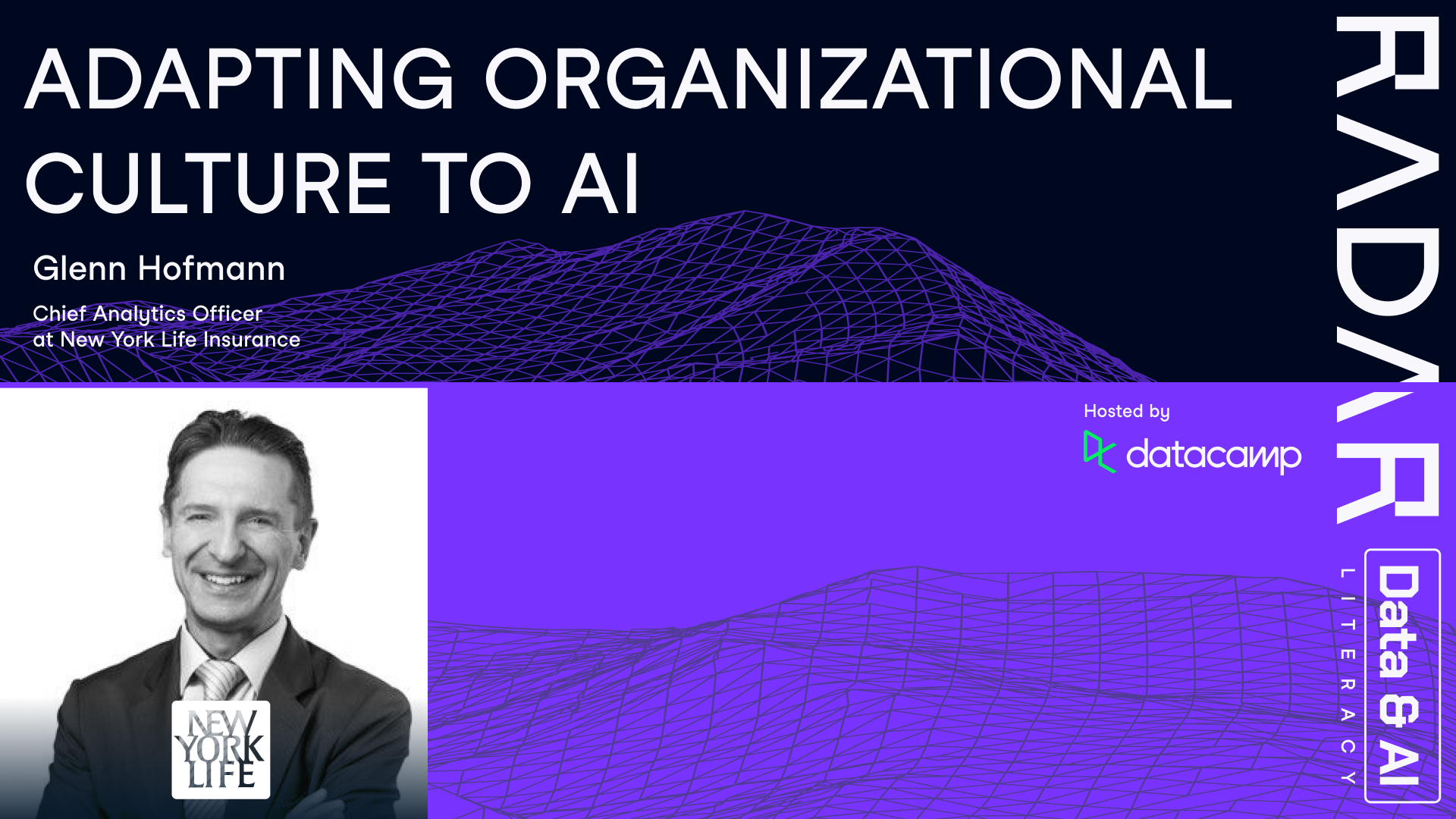Saltar al contenido principalMás información





Altavoces
¿Entrenar a 2 o más personas?
Obtenga acceso de su equipo a la biblioteca completa de DataCamp, con informes centralizados, tareas, proyectos y másRelacionado
webinar
Adapting Organizational Culture to AI
Join Glenn Hofmann, Former Chief Analytics Officer at New York Life Insurance as he shares the ins and outs of building a data & AI-first culture.webinar
Radar Data & AI Literacy Edition: From Insight to Impact with Data Storytelling
In this session, join Gary Wolf, Lea Pica and Jason Forrest as they delve into the world of data stories and how they play out in our lives.webinar
Radar Data & AI Literacy Edition: Laying the Foundations: Data Quality in the Age of AI
Join Susan Walsh and Scott Taylor as they walk us through how data leaders can make meaningful gains on their data quality initiatives, and the nuances of scaling a data quality initiative with AI in mind.webinar
RADAR: The Analytics Edition - Building a Learning Culture for Analytics Functions
In the session, Russell Johnson, Denisse Groenendaal-Lopez and Mark Stern address the importance of fostering a learning environment for driving success with analytics.webinar
Radar Data & AI Literacy Edition: From Data Literacy to AI Literacy
Join data literacy pioneers, Jordan Morrow & Valerie Logan, as they discuss the emergence of AI literacy, key steps leaders can take to foster it, and more.webinar
Radar Data & AI Literacy Edition: Opening Remarks: The Age of Data & AI Literacy
In this opening session, join DataCamp CEO Jonathan Cornelissen, as we explore what it means to live in the era of data & AI literacy.Join 5000+ companies and 80% of the Fortune 1000 who use DataCamp to upskill their teams.
Loved by thousands of companies

